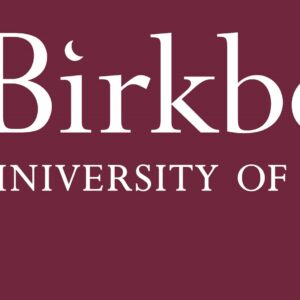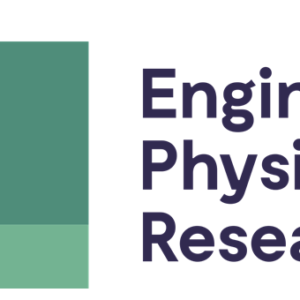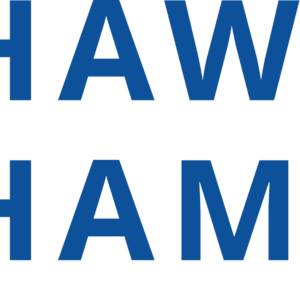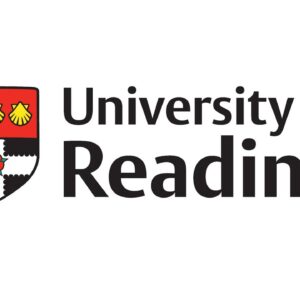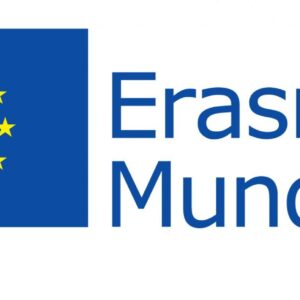Ultimate Guide: How to Find and Win PhD Scholarships in 2025 – Proven Strategies for Guaranteed Success
How to Find and Win PhD Scholarships in 2025. Pursuing a PhD is a significant milestone in academia, offering opportunities to contribute to groundbreaking research. However, the financial investment required often poses challenges for aspiring scholars. Scholarships play a pivotal role in removing this financial barrier and enabling access to world-class institutions.
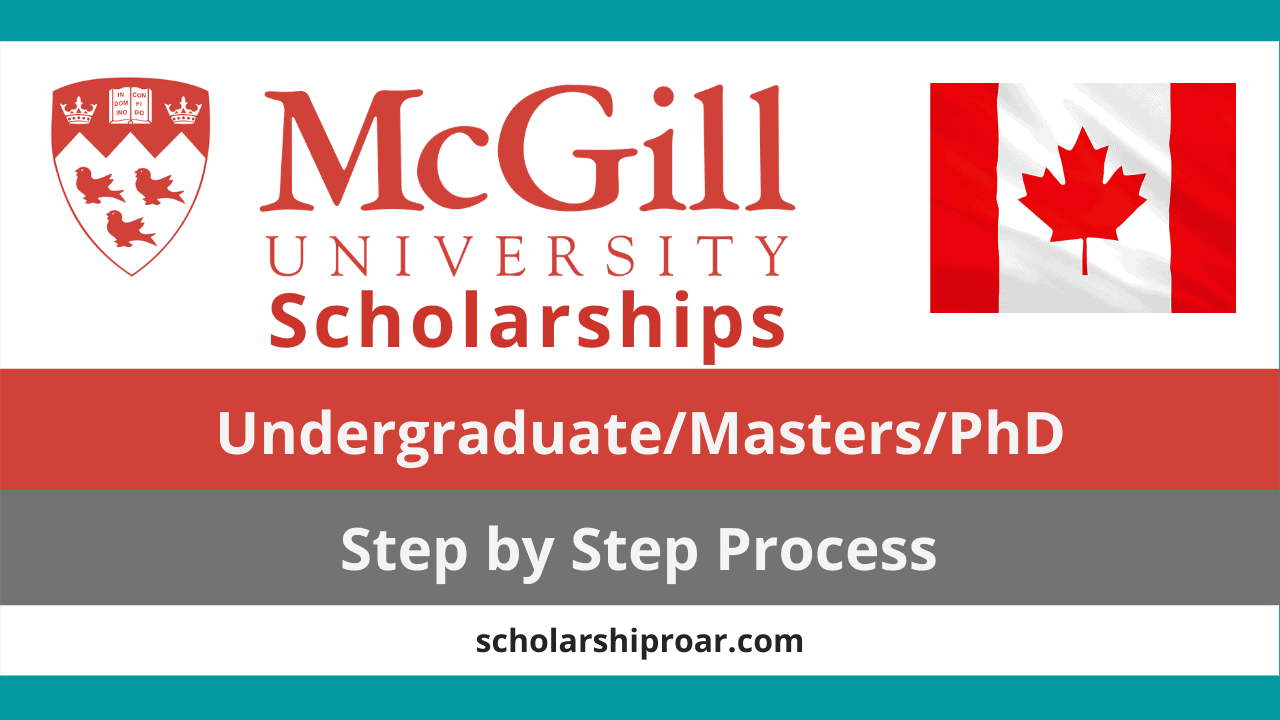
1. Full Scholarships
- Overview:
Full scholarships provide comprehensive financial support, making them the most sought-after option for PhD students. - What They Cover:
- Tuition Fees: Full payment of academic fees for the program.
- Living Expenses: Stipends or allowances for housing, food, and healthcare.
- Additional Costs: Coverage for travel, research materials, and equipment.
- Examples:
- Government-Funded Scholarships: Fulbright Program (USA), Commonwealth Scholarships (UK).
- University Scholarships: Fully funded positions from institutions like Oxford or Harvard.
- Who Should Apply:
- Students aiming to focus entirely on their studies without additional financial burdens.
2. Partial Scholarships
- Overview:
Partial scholarships offer financial support for specific expenses, such as tuition or a monthly stipend, but require students to cover the remaining costs themselves. - What They Cover:
- Tuition Fees: A portion of the academic costs.
- Living Stipends: Monthly allowances to partially offset living expenses.
- Other Specific Costs: Travel grants or funding for specific courses.
- Examples:
- Scholarships from private organizations or foundations.
- University-specific grants for tuition fee reduction.
- Who Should Apply:
- Students with access to supplementary income or funding sources, such as part-time work or savings.
3. Grants and Fellowships
- Overview:
Grants and fellowships are often targeted at specific research-related expenses or projects, providing flexibility for focused academic pursuits. - What They Cover:
- Research Materials: Funding for books, software, or lab equipment.
- Fieldwork: Costs for conducting research outside your university.
- Travel: Support for conferences, collaborative visits, or data collection.
- Examples:
- Research Grants: National Science Foundation (NSF) grants in the USA.
- Fellowships: Marie Curie Fellowships (Europe), Rhodes Scholarships.
- Who Should Apply:
- Students with a clearly defined research project or those seeking specialized funding for specific academic goals.
How to Maximize Funding Opportunities
- Research Early: Begin searching for scholarships well before your application deadlines.
- Diversify Applications: Apply for a mix of full scholarships, partial scholarships, and research grants.
- Tailor Applications: Customize your application to match the funder’s priorities and objectives.
- Combine Resources: Use partial scholarships alongside teaching assistantships or part-time work to cover all expenses.
By understanding and leveraging these funding types, you can craft a financial plan that ensures the success of your PhD journey.
Read Also: Ukrainian Job Scholarships with Work Opportunities
Success Rates & Challenges
With increasing competition, only well-prepared applications stand out. Research alignment, compelling proposals, and strategic networking are key factors in securing scholarships.
Timeline for Applications
- Search Phase: 12-18 months before intended start.
- Preparation Phase: 6-12 months before.
- Submission Phase: 3-6 months before.
- Interview Phase: 1-3 months before.
Why Follow a Strategic Approach?
By understanding scholarship dynamics and adopting a proactive strategy, applicants can significantly improve their success chances.
Scholarship Sources
University Grants
- Directly funded by universities to attract top talent.
- Examples: Oxford Clarendon Scholarship, Harvard GSAS Fellowships.
Government Funding
- Programs like the Fulbright or Chevening focus on international talent.
- Often tied to specific eligibility requirements like nationality or research field.
Research Councils
- National bodies funding specific disciplines (e.g., UK’s UKRI or NSF in the USA).
Private Foundations
- Examples include the Gates Foundation and Rhodes Trust.
Corporate Sponsorships
- Industry partnerships for applied research areas, such as engineering or computer science.
International Organizations
- UNESCO, WHO, and UNDP provide funding for global issues like health and sustainability.
Country-Specific Opportunities
Country-Specific Opportunities for PhD Scholarships
United States
- Fulbright Scholarship
- Purpose: Supports international students studying or researching in the USA.
- Eligibility: Varies by country; candidates must demonstrate academic excellence and leadership potential.
- Funding Includes: Tuition, living expenses, travel, and health insurance.
- Application Process: Submit through the Fulbright office in your home country.
- NSF Grants (National Science Foundation)
- Purpose: Funds STEM (Science, Technology, Engineering, and Mathematics) research.
- Eligibility: US citizens, permanent residents, and international students (specific grants vary).
- Funding Includes: Tuition, stipends, and research expenses.
- Application Process: Often requires institutional support through your university.
- University Funding
- Purpose: Many universities offer scholarships, fellowships, and assistantships for PhD students.
- Examples: Harvard GSAS Fellowships, Stanford Graduate Fellowships.
- Eligibility: Based on academic merit, research alignment, and potential.
- Funding Includes: Tuition waivers, stipends, and research grants.
United Kingdom
- Research Council Scholarships
- Purpose: Fund PhD research in various disciplines, offered by bodies like UKRI (UK Research and Innovation).
- Eligibility: Open to UK, EU, and some international students.
- Funding Includes: Tuition, maintenance stipend, and research expenses.
- Application Process: Apply through your chosen university.
- Commonwealth Scholarships
- Purpose: Supports students from Commonwealth countries to study in the UK.
- Eligibility: Must be a citizen of a Commonwealth nation and demonstrate academic and leadership potential.
- Funding Includes: Tuition, airfare, living expenses, and research costs.
- Application Process: Apply through the Commonwealth Scholarship Commission.
- University-Specific Schemes
- Purpose: Universities like Oxford and Cambridge have dedicated funding for international PhD candidates.
- Examples: Clarendon Scholarships (Oxford), Gates Cambridge Scholarship.
- Eligibility: Academic excellence and alignment with the university’s research focus.
Europe
- Marie Skłodowska-Curie Actions (MSCA)
- Purpose: Supports mobility and interdisciplinary research for PhD students in Europe.
- Eligibility: Open to researchers of all nationalities.
- Funding Includes: Salary, mobility allowance, and research costs.
- Application Process: Apply through the European Commission or participating universities.
- Erasmus Mundus Joint Doctorates
- Purpose: Provides joint PhD programs across multiple European universities.
- Eligibility: Open to students globally, with a focus on academic merit.
- Funding Includes: Tuition, living costs, and travel.
- Application Process: Apply directly to the program.
- National Grants
- Examples: DAAD Scholarships in Germany, French Government Scholarships.
- Eligibility: Varies by country; typically open to international students.
- Funding Includes: Tuition, stipends, and sometimes travel.
- Application Process: Apply through respective national agencies or universities.
Australia & Canada
- Australia’s Research Training Program (RTP)
- Purpose: Funds domestic and international students pursuing research degrees.
- Eligibility: Must meet academic and research criteria of the participating university.
- Funding Includes: Tuition waivers, stipends, and research costs.
- Application Process: Apply through individual Australian universities.
- University Funding in Australia & Canada
- Examples: Scholarships at the University of Melbourne, University of Toronto Fellowships.
- Eligibility: Based on merit, research proposal quality, and faculty alignment.
- Funding Includes: Tuition, living expenses, and research support.
- Government Grants
- Australia: Endeavour Scholarships for international students.
- Canada: Banting Postdoctoral Fellowships for outstanding research.
- Eligibility: Varies, focusing on academic and research achievements.
- Funding Includes: Comprehensive support for studies and research.
Crafting a Research Proposal
Guide to Crafting a Winning PhD Research Proposal
1. Topic Selection
Choosing the right topic is foundational for your PhD research proposal. It sets the stage for your academic journey and determines the feasibility and relevance of your study.
- Criteria for Topic Selection:
- Passion & Interest: Select a topic you are genuinely curious about and willing to invest years exploring.
- Research Gap: Address unanswered questions or unexplored areas in your field.
- Relevance: Ensure the topic aligns with current academic, societal, or industry needs.
- Feasibility: Consider access to resources, data, and time required for your study.
- Tips for Topic Selection:
- Review recent publications and journals in your field.
- Discuss potential topics with professors, colleagues, or mentors.
- Attend academic conferences or webinars to explore trending areas of research.
2. Literature Review
The literature review is a critical component that demonstrates your knowledge of existing research and how your study contributes to the field.
- Steps to Conduct a Literature Review:
- Identify key publications, theories, and methodologies in your field.
- Summarize and critically evaluate past research to highlight gaps.
- Use tools like Google Scholar, JSTOR, and Scopus for a comprehensive search.
- Categorize studies based on themes, trends, or methodologies.
- Purpose:
- Show awareness of the academic conversation around your topic.
- Identify gaps or inconsistencies your research will address.
- Build a theoretical framework for your study.
3. Methodology
The methodology section outlines your research design, data collection, and analysis techniques. It demonstrates how you plan to answer your research questions.
- Key Components:
- Research Design: Specify whether your study is qualitative, quantitative, or mixed-methods.
- Data Collection: Outline how you will gather data (e.g., surveys, interviews, experiments, archival research).
- Analysis: Describe how you will analyze the data (e.g., statistical tools, thematic analysis).
- Ethical Considerations: Highlight measures to ensure ethical compliance (e.g., informed consent, data privacy).
- Tips:
- Align your methodology with your research objectives.
- Justify why the chosen methods are suitable for your study.
4. Timeline
A well-structured timeline shows your planning and ability to meet milestones.
- Creating a Timeline:
- Divide your project into phases: proposal writing, data collection, analysis, writing, and defense.
- Use Gantt charts or tables to visually present milestones.
- Factor in buffer time for unforeseen delays.
- Example Timeline:
- Months 1–3: Literature review and research design.
- Months 4–6: Data collection.
- Months 7–9: Data analysis and preliminary results.
- Months 10–12: Final writing and defense preparation.
5. Budget Planning
Budgeting is crucial for demonstrating the feasibility of your research. It details the costs associated with your study and how you intend to manage them.
- Common Budget Items:
- Research Tools: Software, lab equipment, or materials.
- Travel Costs: Fieldwork, conferences, or library visits.
- Stipends: Living expenses during research.
- Publication Fees: Costs for submitting papers to journals.
- Contingencies: Unforeseen expenses.
- Tips for Budgeting:
- Provide a breakdown of costs with justifications.
- Identify funding sources to cover your expenses.
6. Impact Statement
The impact statement highlights the significance of your research and its potential contribution to your field or society.
- Key Elements:
- Academic Impact: Advancing knowledge or addressing a theoretical gap.
- Practical Applications: Benefits for industries, policies, or communities.
- Societal Relevance: Addressing global challenges or improving quality of life.
- Tips:
- Connect your research to broader societal or industry needs.
- Highlight interdisciplinary or innovative aspects of your study.
7. Supervision Alignment
Effective alignment with your supervisor enhances your research success.
- Choosing the Right Supervisor:
- Look for expertise in your research area.
- Review their publications and research interests.
- Seek feedback from current or former students.
- Building Alignment:
- Communicate your research goals clearly.
- Engage in regular discussions to refine your ideas.
- Be open to constructive feedback and collaboration.
- Benefits:
- Access to their academic network and resources.
- Guidance in navigating challenges and refining methodologies.
By addressing these elements thoughtfully, you can craft a compelling research proposal that stands out to funding bodies, supervisors, and academic committees. Would you like help drafting specific sections?
Application Strategy
Critical Steps
- Timeline Management: Create a detailed calendar of deadlines.
- Document Preparation: Gather transcripts, test scores, and certificates.
- Reference Letters: Select referees familiar with your academic achievements.
- CV Optimization: Highlight academic, research, and extracurricular achievements.
- Statement of Purpose: Tailor each application to demonstrate alignment.
Financial Planning
Budgeting Essentials for PhD Scholarships
When preparing a PhD scholarship application, a detailed and realistic budget is essential. It demonstrates your financial awareness and ensures you have enough funds to complete your research successfully.
1. Living Costs
- What to Include:
- Housing: Rent or dorm fees, utility bills, and internet costs.
- Food: Monthly grocery expenses and occasional dining out.
- Healthcare: Medical insurance premiums and potential out-of-pocket costs, especially for international students.
- Tips for Accuracy:
- Research the average cost of living in your chosen city or country.
- Include contingencies for inflation or unforeseen expenses.
- Check if your scholarship provides stipends or additional allowances for dependents (if applicable).
2. Research Expenses
- What to Include:
- Books and Journals: Costs for purchasing or subscribing to academic resources.
- Lab Equipment: Specialized tools or consumables required for experiments.
- Software and Data Access: Licensing fees for research-related software or access to datasets.
- Tips for Accuracy:
- Itemize your research needs and consult with your supervisor for overlooked items.
- Explore if your university provides discounts or free access to certain resources.
- Include printing, binding, and other incidental costs related to your thesis submission.
3. Travel Funding
- What to Include:
- Conferences: Registration fees, travel, accommodation, and daily allowances.
- Fieldwork or International Research: Costs for transportation, visas, permits, and additional living expenses during travel.
- Collaborative Visits: Travel to partner institutions or laboratories for collaborative research.
- Tips for Accuracy:
- Identify conferences or events you are likely to attend during your PhD.
- Calculate average airfare and accommodation costs based on likely destinations.
- Include allowances for unplanned travel opportunities, as these can enhance your research profile.
General Budgeting Tips
- Use tools like Excel or budgeting software to organize and calculate costs.
- Be transparent and detailed in your budget breakdown to build credibility with funding bodies.
- Consult funding guidelines to align your budget with what the scholarship covers.
- Always include a contingency fund (e.g., 5-10% of the total budget) for unforeseen expenses.
By carefully preparing a budget that covers all aspects of living, research, and travel, you can convince funding committees of your readiness to manage financial resources effectively.
Success Strategies
Networking Tips
- Attend academic conferences.
- Engage with professors on LinkedIn.
Supervisor Selection
- Align your research interests with their expertise.
Publication Planning
- Increase visibility with journal articles and conference presentations.
Avoid These Pitfalls: Common Mistakes in Scholarship Applications
1. Proposal Errors
- Issue:
Many scholarship applications are rejected due to poorly written or unfeasible research proposals. - Common Mistakes:
- Lack of Clarity: Ambiguous objectives or unclear articulation of research aims.
- Insufficient Feasibility: Proposals that appear overly ambitious without realistic methods or timelines.
- Weak Alignment: Failing to connect your research to the funding body’s priorities or goals.
- How to Avoid:
- Write a concise and structured proposal, highlighting clear research questions and objectives.
- Demonstrate the practicality of your methods and timeline.
- Show how your research contributes to academic knowledge or societal impact.
- Seek feedback from mentors or peers to refine your draft.
2. Budget Gaps
- Issue:
Overlooking key expenses or underestimating costs can lead to insufficient funding for your project. - Common Mistakes:
- Omitting research-related expenses (e.g., lab materials, software, or fieldwork).
- Underestimating living expenses, especially in high-cost locations.
- Forgetting costs for conferences, travel, or publications.
- How to Avoid:
- Prepare a comprehensive budget, listing all potential costs, including tuition, living expenses, research tools, and contingencies.
- Use tools like budget calculators to estimate costs accurately.
- Justify your budget with clear explanations for each item.
- Research average costs in your study location to avoid under-budgeting.
3. Timeline Oversights
- Issue:
Missing deadlines can result in automatic disqualification, regardless of the quality of your application. - Common Mistakes:
- Underestimating the time required to gather and prepare documents.
- Forgetting to request reference letters well in advance.
- Ignoring the submission time zone differences for international applications.
- How to Avoid:
- Create a detailed timeline, breaking down the application process into manageable steps.
- Use digital tools or calendars to set reminders for each deadline.
- Request recommendation letters and transcripts early.
- Double-check the submission deadlines and adjust for time zones when necessary.
By addressing these common pitfalls early, you can significantly improve your chances of success in securing a PhD scholarship. Take the time to prepare thoroughly and review your application multiple times before submission.
Alternative Funding
Post-Award Success: Maximizing Your Scholarship
1. Progress Reporting
- What It Involves:
Funding bodies often require regular updates on the progress of your research. This demonstrates accountability and ensures that funds are being utilized effectively. - Tips:
- Adhere to submission deadlines for progress reports.
- Use clear and concise language to outline milestones achieved, challenges faced, and next steps.
- Include supporting materials such as graphs, results, or feedback from your supervisor.
- Communicate openly about delays or issues to maintain transparency.
2. Publication Strategy
- Why It Matters:
Publishing in reputable journals enhances the visibility of your work and fulfills academic expectations. It also strengthens your academic profile for future opportunities. - Steps to Follow:
- Identify high-impact journals in your field early.
- Collaborate with supervisors and co-authors to refine manuscripts.
- Balance your workload to meet both research and publication goals.
- Attend conferences to network and gain feedback before submission.
- Consider open-access options if required by your scholarship.
3. Career Planning
- Purpose:
The end goal of a PhD scholarship often includes preparing for a thriving academic, research, or professional career. - Strategies:
- Build and maintain strong relationships with supervisors, colleagues, and collaborators.
- Leverage scholarship networks for mentorship and job referrals.
- Attend career development workshops, especially those offered by your funding body.
- Use your dissertation as a foundation for future research projects or industry applications.
- Regularly update your CV and LinkedIn profile with new skills, publications, and achievements.
Interactive Elements
1. Scholarship Finder
- What It Does:
Helps you identify scholarships tailored to your academic background, field of study, nationality, and financial needs. - How to Use It:
- Input your qualifications, research interests, and preferred study destinations.
- Filter results based on funding type (full or partial).
- Access deadlines and application requirements for multiple opportunities.
2. Proposal Evaluator
- Purpose:
Offers constructive feedback on your research proposal draft to improve clarity, coherence, and alignment with funding priorities. - How It Works:
- Upload your proposal draft.
- Receive feedback on structure, feasibility, and impact potential.
- Adjust your proposal to increase chances of approval.
3. Timeline Planner
- What It Solves:
Ensures you stay organized with multiple application deadlines and avoid last-minute rushes. - Steps to Use:
- Input all potential scholarship deadlines.
- Add milestones for preparing each component (e.g., proposal writing, document collection, reference letters).
- Sync with your calendar for reminders and alerts.
By excelling in post-award management and using tools to streamline processes, you can maximize the benefits of your PhD scholarship while paving the way for long-term success.
FAQ Section: PhD Scholarships- How to Find and Win PhD Scholarships in 2025
1. Application Deadlines?
- Answer: Deadlines vary depending on the funding body or university.
- Typical Timeline:
- Fulbright: Around February-October (country-specific).
- Marie Curie: Often in September annually.
- Commonwealth Scholarships: Typically November-December.
- Always verify deadlines directly with the funding source and apply early to avoid missing out.
- Typical Timeline:
2. Eligibility Criteria?
- Answer: Criteria differ by scholarship, but commonly include:
- Academic excellence (minimum degree level and GPA).
- Research proposal aligned with funding priorities.
- Citizenship or residency requirements (e.g., Commonwealth Scholarships for Commonwealth nations).
- Professional or research experience for specific programs like NSF Grants.
3. Language Requirements?
- Answer: Many scholarships require proof of language proficiency, especially if English is the medium of instruction.
- Common Tests: IELTS, TOEFL, or other recognized certifications.
- Exceptions: Some universities and scholarships waive this requirement if your previous education was in English.
4. Family Support?
- Answer: Family support varies depending on the scholarship.
- Scholarships like the Marie Curie Actions offer family allowances for dependents.
- Most programs only cover the applicant’s expenses. Additional funding may need to be arranged independently.
5. Working Options?
- Answer: Rules regarding work vary by scholarship and country.
- In the USA: Scholarships like Fulbright often restrict work. Research or teaching assistantships may be permitted.
- In Europe and Australia: Work is typically allowed, subject to visa regulations.
6. Research Restrictions?
- Answer: Some scholarships may impose restrictions on your research topic.
- Examples include:
- Alignment with national or institutional priorities.
- Ethical or political sensitivities in certain countries.
- Clarify restrictions during the application process.
- Examples include:
7. Funding Duration?
- Answer: Scholarships typically cover 3–4 years for a PhD program.
- Examples:
- Commonwealth: 36 months.
- Marie Curie Actions: Up to 36 months.
- RTP in Australia: 3–3.5 years.
- Examples:
8. Success Rates?
- Answer: Success rates vary widely depending on the competitiveness of the scholarship.
- Fulbright: Around 20–25%.
- Marie Curie: 10–15%.
- Local or institution-specific scholarships often have higher success rates due to less competition.
9. Multiple Applications?
- Answer: You can generally apply to multiple scholarships simultaneously, but some programs may have restrictions.
- Tip: Be transparent if a scholarship application requires disclosure of other funding sources.
10. Interview Process?
- Answer: Many scholarships require interviews to assess suitability.
- Format: In-person, virtual, or phone interviews.
- Preparation: Focus on research proposal, career goals, and potential contributions.
11. Document Requirements?
- Answer: Typical documents include:
- Academic transcripts and certificates.
- Research proposal.
- Statement of purpose.
- Curriculum Vitae (CV).
- Letters of recommendation.
- Language proficiency certificates (if applicable).
12. Extension Possibilities?
- Answer: Extensions may be granted for valid reasons (e.g., health issues, additional research needs).
- Most scholarships require formal applications for extensions and may not cover additional funding.
13. Publication Requirements?
- Answer: Some scholarships require publications as part of the PhD progress.
- Examples:
- Marie Curie Actions encourages publications during the project.
- RTP in Australia may factor in publication progress during extensions.
- Examples:
14. Teaching Duties?
- Answer: Many scholarships (e.g., university assistantships) may include teaching responsibilities.
- Scope: Generally limited to 5–10 hours per week.
- Teaching can often be an additional source of income and experience.
15. Travel Funding?
- Answer: Scholarships often include provisions for travel related to research or conferences.
- Examples:
- Fulbright and Commonwealth Scholarships include airfare.
- Research grants like Marie Curie cover travel costs for fieldwork or collaborative research.
- Examples:


